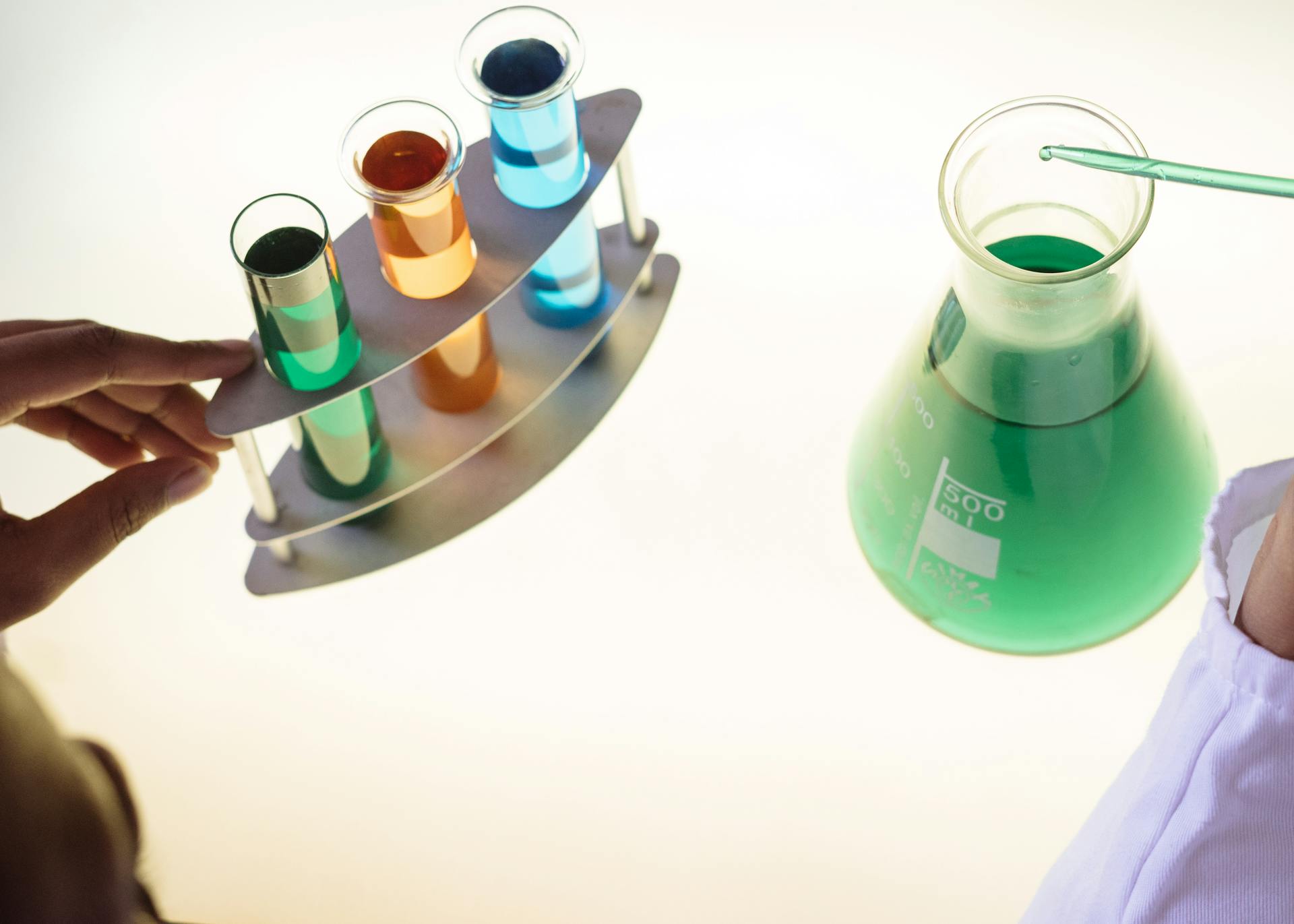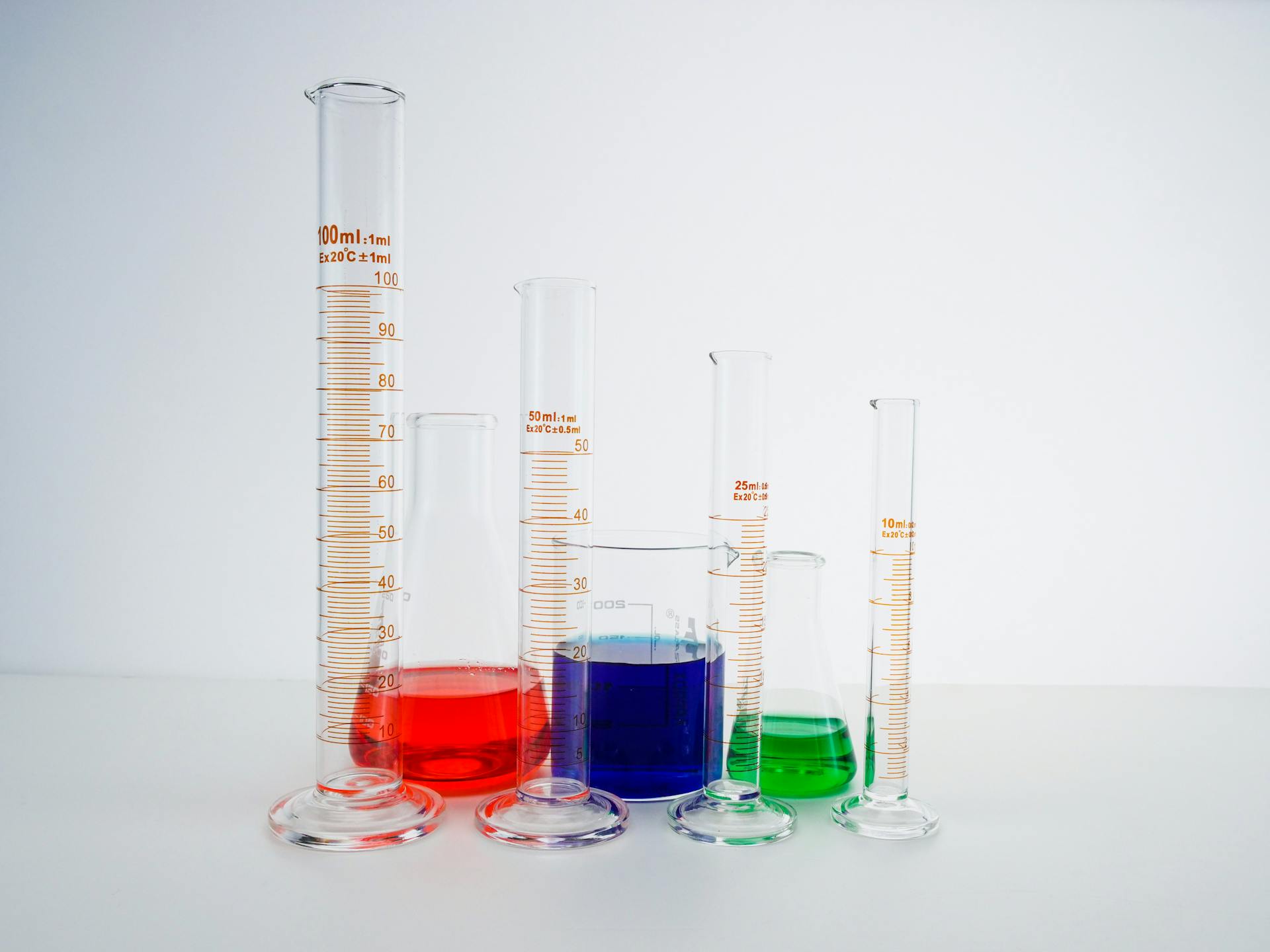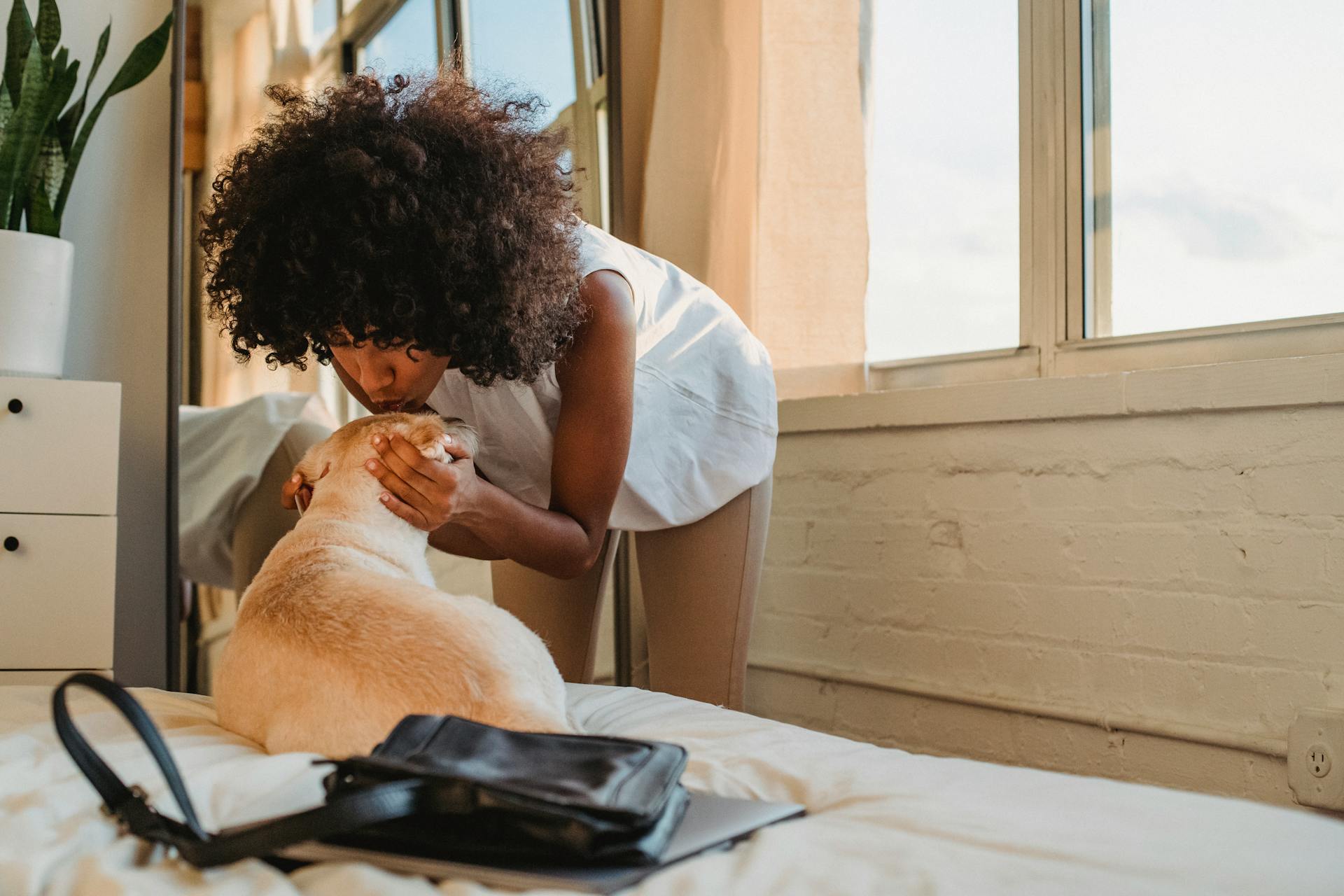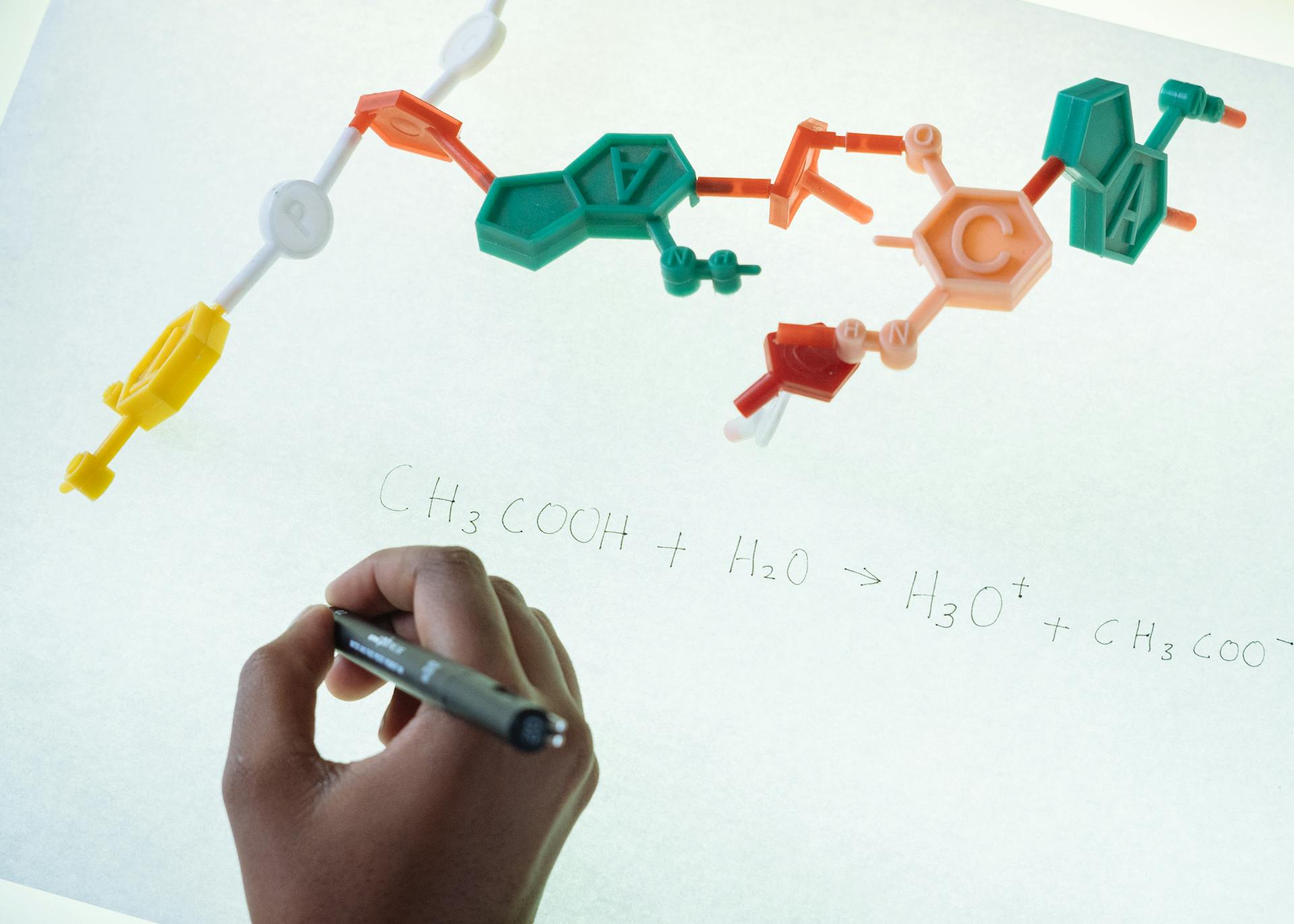
Welcoming a Lab Shepherd mix puppy into your family can be a thrilling experience. They are a cross between a Labrador Retriever and a German Shepherd, often inheriting the best traits from both parents.
Lab Shepherd mix puppies are known for their high energy levels, which require regular exercise to keep them happy and healthy.
Their intelligence is one of their most notable characteristics, making them highly trainable.
Temperament & Intelligence
The temperament and intelligence of a Lab Shepherd Mix puppy are truly unique and wonderful traits. German Shepherds are known for being highly protective of their families, which can sometimes be misconstrued as aggression, but with proper socialization and training, they're loving and loyal companions.
These dogs are highly intelligent, which can sometimes make them a bit stubborn, especially when it comes to commands. They thrive on mental stimulation, so it's essential to provide puzzle feeders and engage them in activities that challenge their minds.
Positive reinforcement training is the way to go with a Lab Shepherd Mix, as they respond well to praise and rewards. Avoid dominance-based training methods, as they can lead to negative feelings towards you and the commands.
In terms of intelligence, Lab Shepherd Mixes are known to be smart, sweet, affectionate, and devoted, inheriting these traits from their parent breeds.
Here's a quick rundown of the temperament and intelligence traits you can expect from a Lab Shepherd Mix:
These traits make them fantastic family pets and with proper care and attention, they'll grow into wonderful, loving companions.
Physical Characteristics
A Lab Shepherd mix puppy is going to be a medium to large-sized dog. They can weigh up to 88 pounds when mature.
Their height will typically range from 24 to 26 inches tall from the shoulder, with males being slightly taller than females. Females tend to be between 20 and 24 inches at the withers.
Their coat type is a double coat, which means they have a soft undercoat and a rough top coat that protects them from temperature extremes. They can have a solid color or mixed color coat, and some may have characteristic black markings found along the face, back, and on the legs.
Here are some physical characteristics to expect in a Lab Shepherd mix puppy:
Common Physical Features
A German Shepherd Lab mix can take on a wide range of physical features, but they often have athletic builds, neither too muscular nor too lean.
Their body is usually somewhere in the middle, with strong muscle development on their hind legs depending on their activity levels.
Most Lab mixes have wide snouts and dark noses.
Their eyes are large and brown, although some pups may have light eyes, which is quite rare.
Genetic variations in the parent breeds can lead to lighter eyes, but big brown eyes are the norm.
Readers also liked: Australian Shepherd Lab Retriever Mix
Lab mixes often have large ears that flop down over the sides of their head, but some may have perky triangular ears like their German Shepherd parent.
The interesting thing about their ears is that they're often soft and fluffy when they're born, and only develop cartilage as they grow older.
Here's a rough estimate of the physical characteristics of a Lab German Shepherd mix:
Males can weigh up to 88 pounds and stand between 22 and 26 inches tall, while females are typically smaller, weighing around 35 to 80 pounds and standing between 20 and 24 inches tall.
Characteristics
Your German Shepherd Lab Mix will likely be a medium to large-sized dog, weighing around 88 pounds when mature. They can measure anywhere from 24 to 26 inches tall from the shoulder.
Their coat type is a double coat, with a soft undercoat under a rough top coat that protects them from temperature extremes.
They can have a solid color or mixed color coat, and may have characteristic black markings if they take after their German Shepherd parent.
A Lab German Shepherd mix will have a high amount of shedding, so be prepared for regular grooming.
Here are some key physical characteristics of a German Shepherd Lab Mix:
Their eyes are round and dark, and their nose is large. Their ears can be alert or drooping, depending on their parent breeds.
Health and Wellness
Your lab shepherd mix puppy is a bundle of energy and requires regular exercise to stay healthy. Aim for 90-120 minutes of exercise daily, broken up into manageable chunks, to prevent health complications.
Hip and elbow dysplasia are potential health issues to watch out for, as well as eye problems like cataracts and progressive retinal atrophy. Regular veterinary check-ups can help identify these conditions early on.
To ensure your puppy stays healthy, feed them top-quality food suitable for their weight, and consider a diet rich in protein and complex carbs. Some good options include Precise Holistic and Purina Beyond, which are designed for large breed dogs like your lab shepherd mix.
Lifespan

The lifespan of a German Shepherd Lab mix is a topic worth considering. The average lifespan for this mix is between 10 and 12 years.
Larger dogs like German Shepherd Lab mixes tend to have a shorter lifespan than smaller ones. Generally, they live between 10 and 12 years.
Health issues can significantly affect a German Shepherd Lab mix's lifespan. A poor lifestyle can also cut their lifespan short.
On the other hand, extremely healthy pups are capable of living past 12 years of age.
Health and Conditions
German Shepherds and Labrador Retrievers are prone to certain health issues, and their mix, the German Shepherd Lab, may inherit some of these problems. Hip and elbow dysplasia are common in both parent breeds, and it's essential to take your puppy to a vet as soon as it gets home to catch any potential issues early.
Hip dysplasia can cause debilitating pain and mobility issues with the hip joint, and it's often a hereditary problem. Elbow dysplasia is another condition that affects the joint, causing pain and discomfort.

The German Shepherd Lab mix may also be susceptible to bloat, epilepsy, diabetes, cataracts, degenerative disc diseases, PRA or Progressive Retinal Atrophy, and ear infections. Regular veterinary check-ups and a healthy lifestyle can help prevent or manage these conditions.
Here are some specific health concerns to be aware of in German Shepherd Lab mixes:
It's essential to be aware of these potential health issues and take steps to prevent or manage them. Regular veterinary check-ups, a healthy lifestyle, and proper care can help ensure your German Shepherd Lab mix lives a long and happy life.
Nutrition and Fitness Requirements
Shepherd Labrador mixes are incredibly active dogs that need a lot of exercise to stay healthy. They require between 90 and 120 minutes of exercise every single day.
To make exercise time manageable, you can break it up into chunks throughout the day. Just make sure to get those 90 minutes in to keep your dog healthy.
These dogs have insatiable appetites, so it's essential to choose a high-quality dog food that meets their nutritional needs. Look for food with wholesome proteins like chicken, beef, or fish.
A good rule of thumb is to feed your dog 30 calories of food for each pound of body weight. This usually amounts to about 4 cups of dry kibble a day.
Here's a rough guide to help you plan meals:
Diet and exercise go hand-in-hand. If you don't provide enough exercise, your dog will be at a higher risk of health complications, including weight gain.
Care and Maintenance
Your German Shepherd Lab mix puppy needs regular grooming to prevent matting and tangling, especially if they inherit their German Shepherd's thick double coat. Brush them every few days to keep the fallout to manageable levels during shedding cycles.
You'll want to use a durable brush with tough natural bristles to remove knots and enhance shine. A good handle is also essential for comfortable grooming sessions. Don't forget to vacuum regularly to remove hair from furniture and floors.
Bathing should be done as necessary, but over-bathing can dry up their coat, leading to itching and irritation. Consider bathing them after a swim to remove chlorine or dirt, and use a gentle shampoo like Earthbath All-Natural Pet Shampoo, which is packed with vitamins and minerals for a healthy coat.
Grooming Needs
Grooming your German Shepherd Lab mix requires regular attention to their thick double coat. This coat can mat and tangle easily, so it's essential to brush them regularly.
You'll need to brush your pup every few days if they have a double coat, and even more often during shedding cycles. This will help manage the fallout and keep your home clean.
A durable brush with tough natural bristles is perfect for grooming your dog. You'll also need an efficient vacuum cleaner to remove hair from furniture and floors.
Bathing should be done as necessary, as over-bathing can dry out your dog's coat and cause irritation. Consider bathing your dog after a swim to remove chlorine and dirt.
Use a gentle shampoo that's suitable for your dog's skin type. Earthbath All-Natural Pet Shampoo, 4-Legger shampoo, and Oxgard Organic Oatmeal shampoo are good options to consider.
Keep an eye on your dog's nails and paws, cleaning them regularly to prevent scratches and injuries. You may also want to consider professional grooming to keep your dog looking their best.
Food & Diet
German Shepherd Lab mixes are incredibly active dogs that require a lot of exercise to stay healthy. They need at least 90 minutes of exercise per day, which can be broken up into manageable chunks throughout the day.
To keep your dog's energy levels stable, it's recommended to split their caloric requirements into two small meals a day. This will help prevent issues like bloat and ensure your dog stays healthy.
Your dog's diet is just as important as their exercise routine. They need food that's packed with protein, complex carbs, and healthy fats like fish oil. Avoid foods with artificial ingredients or unnecessary fillers, and opt for wholesome proteins like chicken, beef, or fish.
Here are some guidelines for choosing the right dog food for your German Shepherd Lab mix:
As a general rule, dogs need about 30 calories of food for each pound of body weight. This usually amounts to about 4 cups of dry kibble a day, but this can vary depending on the food and your dog's size.
Your hairy friend comes from different parents, so you can experiment with different dog food formulas. Just be sure to consult with your vet before making any changes to your dog's diet.
Exercise Requirements
You'll want to make sure your German Shepherd Lab mix gets plenty of exercise every day. Aim for 90 to 120 minutes of physical activity, broken up into manageable chunks if needed.
These dogs are naturally active and love to play, so you'll want to give them plenty of opportunities to run around and get their energy out. A tired dog is a happy dog, after all!

To avoid health complications, it's essential to provide your dog with regular exercise. A lack of physical activity can lead to weight gain and laziness, so make sure to get your dog moving every day.
If you're looking for ways to keep your dog entertained, try taking them for a run or playing fetch in the yard. You can also try swimming with your dog, as they love the water due to their Labrador Retriever lineage.
Remember, exercise is just one part of maintaining a healthy lifestyle for your German Shepherd Lab mix. A balanced diet is also crucial, so make sure to choose a high-quality dog food that meets their nutritional needs.
Puppies for Sale
If you're set on buying a puppy, it's essential to research reputable breeders and their health clearances.
Start by searching for three or more breeders and rank them according to reputation. You can check reviews and recommendations on the Pet Professional Guild website.
Recommended read: Lab Weimaraner Mix Breeders
Talking to the breeder about the health conditions of both parent breeds is crucial. They should be able to show proof that the parents were crossed to create the German Shepherd Lab mix dog or pup.
If you're looking for online platforms to find German Shepherd Lab mix puppies, consider the following websites: PuppyFind.com, NextDayPets.com, Adopt-a-Pet.com, Petfinder.com, and Green Field Puppies.
However, the American Society for the Prevention of Cruelty to Animals (ASPCA) recommends adopting a dog from a local shelter or rescue instead of buying online.
Owning Essentials
You'll want to have a few key tools on hand to make maintenance a breeze. A good screwdriver set is essential for any DIY project, and a basic toolkit should include a hammer, pliers, and wrench.
A well-stocked toolbox can make a big difference in your ability to tackle tasks on your own. The average homeowner should have a minimum of 10 essential tools, including a level, tape measure, and utility knife.
Don't forget to invest in a good quality air compressor, as it will be a valuable asset for powering various tools and equipment. In fact, a high-quality air compressor can last for many years with proper maintenance.
Training and Behavior
Training a lab shepherd mix puppy can be a fun and rewarding experience, but it does require some patience and consistency. These dogs are intelligent and love to please, but they can also be a bit stubborn at times.
Positive reinforcement is key when training a lab shepherd mix puppy. Using treats, praise, and affection can help them learn quickly and effectively. It's also essential to be consistent and use the same commands and hand signals every time.
Lab shepherd mix puppies thrive on mental stimulation, so make sure to provide them with plenty of puzzle toys and interactive games. This will help keep their minds occupied and prevent boredom and destructive behavior.
Some common personality traits of lab shepherd mix puppies include being loving, energetic, and protective. They also tend to be great with children and make excellent family pets. However, they can be a bit shy around strangers and may require some socialization.
Here are some common challenges that owners of lab shepherd mix puppies may face:
- High energy levels
- Separation anxiety
- Barking and whining
- Destructive behavior when bored
To address these challenges, it's essential to provide your lab shepherd mix puppy with plenty of exercise, mental stimulation, and attention. Consistency and patience are key when training these dogs, and positive reinforcement is always the best approach.
Lab shepherd mix puppies are also known for their intelligence and ability to learn quickly. With the right training and socialization, they can become confident and well-behaved adult dogs. So, if you're considering bringing a lab shepherd mix puppy into your family, be prepared for a fun and rewarding experience!
Socialization and Compatibility
Socialization is key to a well-adjusted lab shepherd mix puppy. They need to be socialized at a young age and introduced to other dogs and smaller pets to get along well with other family pets.
You should socialize them early on to get along just fine with kids, as long as you exercise caution and keep a watchful eye. Never leave your dog alone with young kids.
Exposure to other animals is key during their development, so introduce them to new family dogs slowly to prevent any aggressive behavior. Proper socialization will help them do just fine with other dogs.
These dogs are patient with children and will never roughhouse or bite, but they may become anti-social and aggressive if not introduced to people and other pets early on. Your dog should be trained first and exposed to other dogs and people to prevent this untoward behavior.
To ensure a harmonious household, teach young children how to act around a dog, and never pull their tail or agitate them in any way. With proper socialization and training, your lab shepherd mix puppy will make a great family dog.
Frequently Asked Questions
How big will a Labrador Retriever shepherd mix get?
A Labrador Retriever Shepherd mix can weigh between 35-90 pounds, depending on its sex and size. Males tend to be larger, requiring more calories and space to grow.
What is a German Shepherd Lab mix called?
A German Shepherd Lab mix is commonly known as a Labrashepherd or German Sheprador. This energetic and loyal breed combines the best qualities of its parent breeds.
Are Lab terrier mixes good dogs?
Lab Terrier mixes make loyal and affectionate companions, making them a great choice for many families. They're protective yet loving, making them an ideal breed for those seeking a devoted pet.
Are shepherd Lab mix good dogs?
Shepherd Lab mixes can make excellent family pets for experienced owners who provide proper socialization and training. However, they may not be the best fit for every family.
Do German Shepherd lab mix ears stand up?
German Shepherd Lab mixes typically develop pointy ears as they mature, but it may take around 5 months for their ears to stand up after teething is complete. The timing may vary depending on individual development, so it's essential to monitor your puppy's progress.
Sources
- https://animalcorner.org/dog-breeds/german-shepherd-lab-mix/
- https://www.thelabradorsite.com/german-shepherd-lab-mix/
- https://www.alphapaw.com/dog-breeds/german-shepherd-lab-mix/
- https://www.dogster.com/dog-breeds/german-shepherd-lab-mix
- https://www.dailydogtag.com/pet-photography/puppy-love-athena-lab-german-shepherd-mix/
Featured Images: pexels.com


